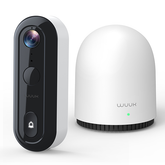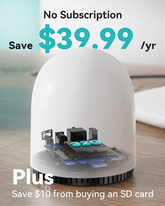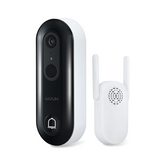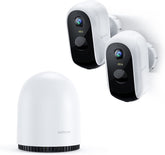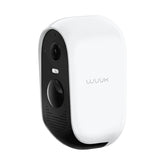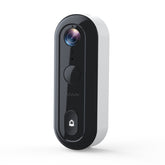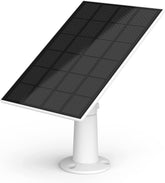How Home Security Cameras Can Help Deter Crime and Keep Your Family Safe
Navigation
- Do we need a home security system?
- Types of home security cameras
- Things to consider in deciding on home security cameras:
- Conclusion
With the help of home security cameras, it's now possible to keep an eye on your home and family even when you are miles away – it is an exciting technology development that benefits many people. Home security cameras nowadays have become essential for deterring crime and keeping families safe. In this blog post, we'll discuss the benefits of home security cameras, how they can deter crime, monitoring activity, identifying intruders, and how they can help keep your family safe from burglars, vandals, and other lurking threats. We hope this helps you to
People need home security cameras for a variety of reasons, including deterring crime, gathering evidence in the event of a crime, and tracking suspicious activity. Home security cameras can also provide peace of mind knowing that your home is being monitored and that you have an additional layer of protection.
Do we need a home security system?
The answer is a clear “YES!”
A strategic installation of security cameras, one of the key components of a home security system, can effectively offer necessary visuals and timely access to see and monitor activities happen around a house or a property, and acknowledge owners of potential threats, especially in vulnerable areas like doors and windows. Besides, security cameras can also cover high-traffic zones such as driveways and yards, offering us a more comprehensive view of our surroundings.
One of the main benefits of installing home security cameras is that they can help deter crime. By making the presence of cameras visible, potential criminals may be discouraged from attempting to commit a crime in an area where they know they are being watched and could be easily caught.
According to a recent survey conducted by the National Crime Prevention Council, 80% of burglars said they would be deterred from committing a crime if they knew that a home was equipped with a security camera system. Additionally, a University of North Carolina study found that 74% of convicted burglars said that the presence of a home security camera would make them think twice before attempting a burglary.
Home security cameras can also be used to gather evidence in the event of a crime. Video footage from the cameras can be used to identify suspects and help police with their investigations. Potential criminals may think twice before attempting a break-in if your home has a security camera system. Even if they do attempt a break-in, the footage from your security cameras helps identify and apprehend the culprits. In the unfortunate event that a crime does occur, having footage from security cameras can be invaluable in identifying suspects and helping to bring them to justice. Please ensure that our home security system includes reliable, high-quality cameras that capture clear and accurate footage.
Other than that, home security camera system usually is not a standalone piece and is able to be used in conjunction with other security measures such as motion-activated lights, alarm systems, and locks to further deter crime. By having multiple layers of security in place, homeowners can make their home a less attractive target for burglars.
Installing home security cameras can also provide peace of mind knowing that your home is being monitored. With cameras in place, homeowners can rest assured that their homes are safe and secure.
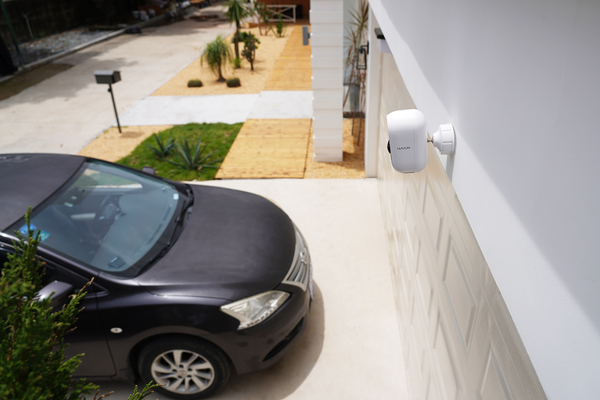
Types of home security cameras
IP-based cameras: rather than being a specific kind, IP cameras are a large category of internet-based security cameras overall. "IP" stands for Internet Protocol, which means that these cameras can connect to a network and transmit data over the internet. IP cameras record footage digitally and can transmit that footage to a network video recorder (NVR) or a cloud-based storage service. They come with many features, such as motion detection and night vision. Nowadays, more and more people choose security camera system for home that is able to connect directly to their smartphones, rather than building up a NVR system themselves. The later requires some professional knowledge on technology and installation.
IP cameras can be used both indoors and outdoors, and they come in a variety of form factors, such as dome cameras, bullet cameras, and PTZ cameras.

Indoor Cameras: Indoor cameras are designed to be used inside your home, and they're often used to keep an eye on your children, pets, or general activity in your home, or to monitor specific rooms, such as a nursery, playroom, or home office.. These cameras can be mounted on a wall or placed on a shelf or table, and are designed to be wired, as it performs the best for the purpose of monitor indoor areas continuously for 24/7. They're usually smaller than outdoor cameras, because for being an wired device, it doesn’t need to carry battery pack(s). Some indoor security cameras are designed to be able to pan and tilt, so these cameras cover a wider range of indoor areas. For these models, users are able to move and adjust their security cameras’ angle remotely without having to physically move the camera.
Outdoor Cameras: Outdoor cameras are designed to be weather-resistant and durable, and withstand the elements, including rain, wind, and temperature fluctuations. They're typically larger than indoor cameras and can be mounted on a wall, ceiling, or other surface, and they often come with infrared night vision to capture clear footage in low-light conditions. It is a trend that outdoor cameras are designed and built to be wireless, thanks to battery technology. These wireless outside cameras see an advantage of easy installation without worrying of wires. However, they are more susceptible to signal interference than others. Their counterparts are wired cameras, which are more reliable but more difficult to install.
Doorbell Cameras: Doorbell cameras are becoming increasingly popular. They're typically installed next to your front door or replace the traditional doorbell and chime in your house. With a video camera bulit-in, most of models allow you to see and speak to anyone who rings the doorbell, even if you're not home. Many doorbell cameras also have motion detection that designed to capture footage of anyone who approaches your door, and can send alerts to your phone if someone approaches your door.

Things to consider in deciding on home security cameras:
- Type of Camera: As we discussed earlier, there are different types of home security cameras, including indoor, outdoor, doorbell, PTZ, and hidden cameras. Consider the area you want to monitor and the features you need, and choose the type of camera that suits your needs.
- Resolution: The resolution of the camera determines the quality of the video footage it captures. Higher resolution cameras can capture more detail and produce clearer images, but they may also be more expensive. Choose a camera with a resolution that meets your needs and fits your budget.
- Field of View: The field of view refers to the area that the camera can capture. A camera with a wider field of view can monitor a larger area, but it may not provide as much detail as a camera with a narrower field of view. Consider the area you want to monitor and choose a camera with an appropriate field of view.
- Night Vision: If you want to monitor your home at night or in low-light conditions, you should choose a camera with night vision. Some cameras come with built-in infrared illuminators to enhance visibility in the dark.
- Storage: Consider how you want to store and manage the video footage captured by your cameras. You can store footage on a local NVR or on cloud-based storage services. Some cameras come with built-in storage, while others require you to purchase a separate storage device.
- Connectivity: Consider how you want to access and control your cameras. Some cameras can be controlled through a mobile app or web interface, while others require a separate control device. Make sure the camera you choose is compatible with your home network and the devices you want to use to control it.
- Price: Home security cameras can vary widely in price, from less than $50 to several hundred dollars. Consider your budget and choose a camera that meets your needs and fits your budget.
- Subscription Fees: Some home security cameras require a subscription to access certain features, such as cloud-based storage or advanced motion detection. Be sure to factor in any subscription fees when choosing a camera, and consider whether the added cost is worth the extra features.
- Privacy: Home security cameras can raise privacy concerns, both for you and for others who may be captured on camera. Consider where you place your cameras to minimize capturing areas where privacy is expected, such as bedrooms and bathrooms. Additionally, be sure to choose a camera with strong security features, such as encryption and password protection, to prevent unauthorized access to your footage.
- Brand: brand can be an important factor when choosing home security cameras, especially customer support, software design and practice around user privacy protection – as the “privacy” factor mentioned here, if you value your privacy and data, it's important to do your research thoroughly and choose a reputable brand that you trust.
Conclusion
Although home security cameras are not a cure-all for all security problems, the cameras can provide admirable benefits in deterring crime and keeping our family secure. If you're considering adding security cameras to your home, be sure to do your research to find the system that best suits your needs. By carefully weighing your options and choosing a system that meets your needs and fits your budget, you can help ensure the safety and security of your home and family.


